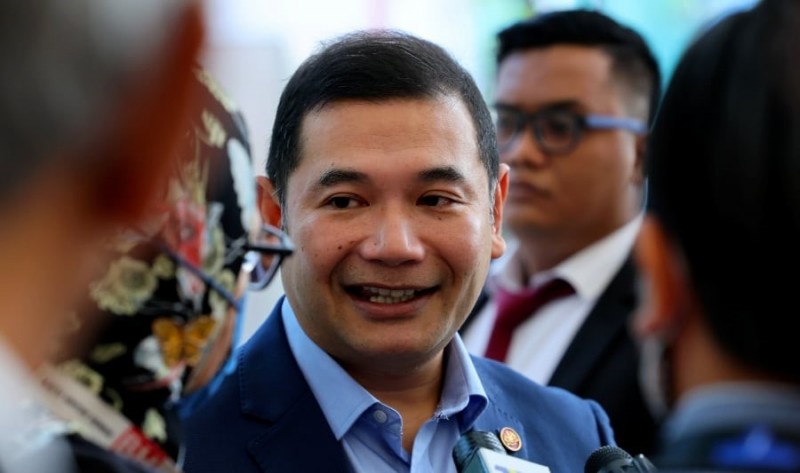
KUALA LUMPUR: The government hopes to increase the realisation rate of foreign direct investments (FDIs) in the near future through upskilling and reskilling efforts, said Economy Minister Rafizi Ramli.
The government had approved RM200 billion of FDIs in the past three years but only 30 per cent had been realised, Rafizi added.
This is due to a mismatch in the existing skills in the workforce as opposed to the requirements of the investors, causing great challenges for the investors when they decide to relocate to Malaysia.
"In the past few years, the real issue in the economy is not so much not getting investment. It is about bridging the gap between what the investors need in terms of workforce and talents, with what we can provide.
"That's why, in the economy now there is a mismatch; people talk about not having jobs or having to do low paying jobs, but when you go to the list of jobs advertised, and you talk to the industry, they will talk about talent shortage.
"So through these kind of programmes and MoU, we hope to be able to bridge that gap in terms of skill mismatch, so that those who were not trained for specific expertise in green technology, in high value skills, they can be very quickly upgraded so that they can pivot and take up these jobs."
Rafizi was speaking at an MoU signing between Malaysia Petroleum Resources Corporation (MPRC) and French research and training institute IFP Energies Nouvelles (IFPEN) to explore ways to elevate the capabilities of the Malaysian oil and gas services and equipment (OGSE) companies amid the energy transition.
Rafizi said similar programmes and MoUs would enable the government to scale the upskilling efforts on a national level.
They will also refocus or divert those who are under-employed with degrees but do not meet the requirements of the investors, and create job opportunities in high paying jobs and at the same time fully realising the approved FDIs.
The government plans to have similar MoUs and programmes in the future to ensure Malaysia has the right expertise and technology, as well as to prepare the workforce to enter more strategic and crucial sectors.
"What we aim to replicate is, as the economy moves towards greener energy, and more sustainable switch to something like biomass, hydrogen, and eventually the society will adopt a circular economy, which will create the kind of jobs to facilitate this, and to enable this, that can mirror high paying jobs that we are seeing in oil and gas.
"This is a very important two-pronged strategy and while it's just a first step, it is a very important step to make sure that we get all the necessary partners from around the world to help us with this transition," he said.
The MoU between MPRC and IPFEN aims to support the implementation of the National OGSE Industry Blueprint 2021-2030 as well as contribute to the achievement of national sustainability goals.
This will cover areas including the energy transition and decarbonisation journey, as well as human capital development in those areas.
"With this agreement that MPRC is signing with IFPEN, we expect to elevate outcomes of the OGSE Blueprint by uncovering new growth opportunities for Malaysian OGSE companies to harness and enhance their potential.
"This will strengthen OGSE companies' resilience to tackle business imperatives beyond the OGSE Blueprint's 2030 finish line and safeguard their sustainability for the long term," said MPRC chief executive officer Mohd Yazid Ja'afar.
Rafizi also addressed the issue of targeted subsidies, saying that there was no argument on the necessity of it.
However, the government needs to have an in-depth analysis on how to strike a balance so that no group is excluded.
Rafizi said the government would have to make sure that when it was rolled out, it was balanced between some conflicting concerns.
"The first concern is make sure that it's inclusive. You don't exclude some groups that are really in need of assistance or fuel subsidy.
"The second concern is to make sure that we don't unwittingly push the inflation up, because as you remove subsidies, obviously retailers and business owners will have to factor in higher costs. If you don't balance it, you have another problem with inflation," said Rafizi.
He said one of the needed solutions was to develop better infrastructure in order to identify those in need.
The current database only shows income, not size of household or location.
Rafizi added that the government was on the right track to eventually be able to roll out the targeted subsidies that would benefit those who need it the most.
Source: https://www.nst.com.my/business/2023/03/884788/government-raise-realisation-rate-fdis-says-rafizi?utm_source=nst&utm_medium=mostpop

